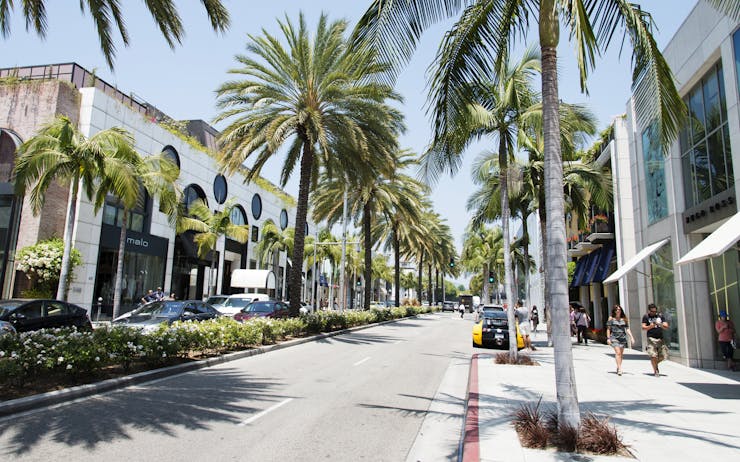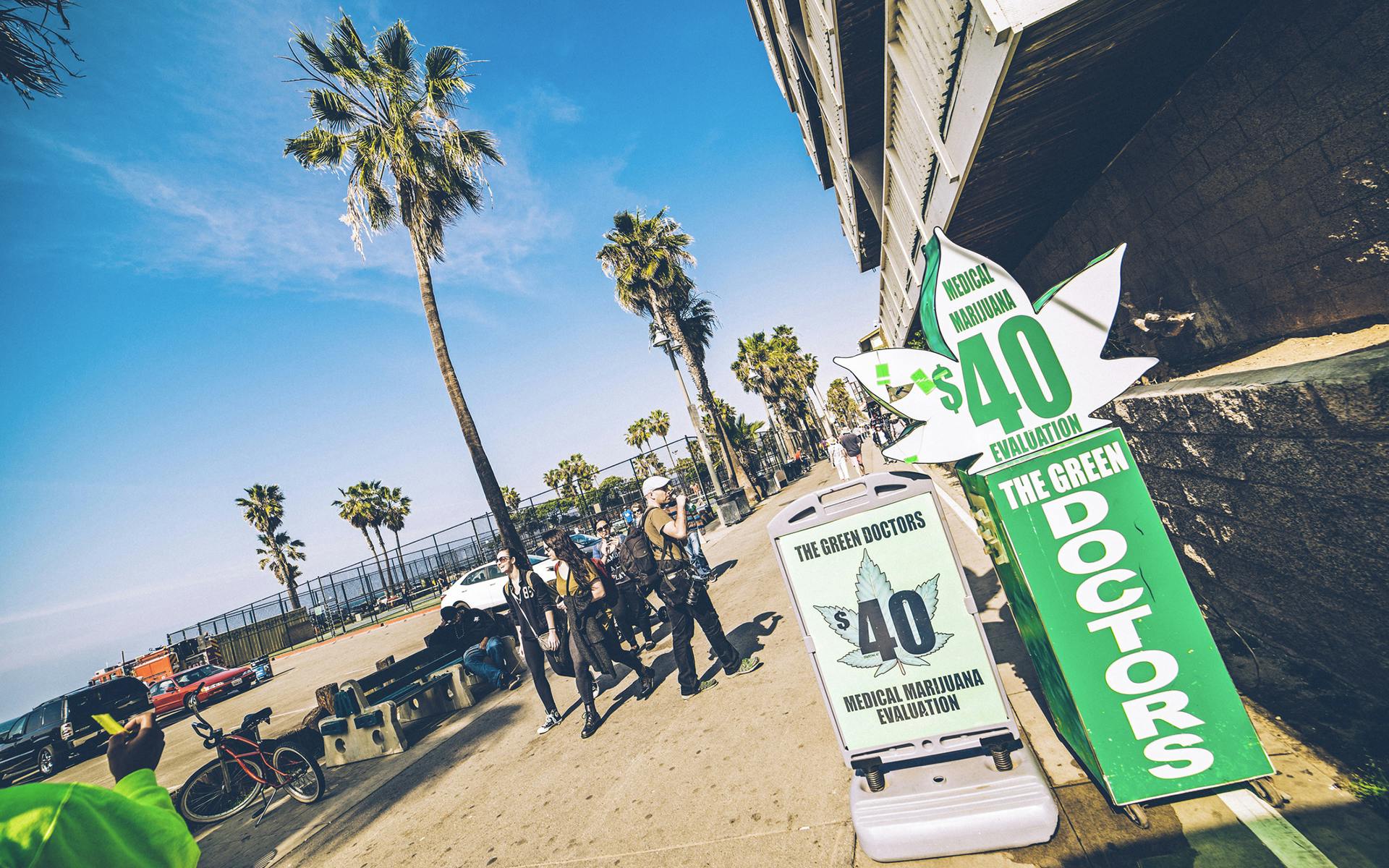After more than a year of community meetings, bureaucratic review, and sometimes bitter industry infighting, the Los Angeles City Council released its draft cannabis regulations Thursday. While still subject to public comment and revision, the proposed rules give a glimpse of what the industry might look like in California’s largest cannabis market.
Much of the document is unsurprising. As lawyer Hilary Bricken of the cannabis-focused Harris Bricken law firm points out, “most of these initial regulations identically track initial state regulations” under the state’s medical cannabis law. (If you’re not familiar with those, you might want to start by reading our quick explainer.) But Los Angeles has long been something of an odd duck when it comes to cannabis regulation, and there are some provisions that will continue to set the city apart.
Newcomers, Don’t Get Your Hopes Up
Existing dispensaries that operate with the city’s blessing (thanks to a complicated regulatory scheme, 135 dispensaries are allowed to operate despite a blanket ban on retail cannabis) will have first crack at city-issued “compliance certificates.” Applications from the general public won’t be accepted until after existing dispensaries are considered. In an effort to promote equity in ownership, the number of certificates granted to the general public may not exceed the number granted to applicants through a diversity-focused social equity program. That process could take months or years.
No Explicit Limit on Number of Retail Stores
The draft regulations don’t put a hard cap on the number of dispensaries in LA. That said, because certificates will be granted under a multi-phase process that ties the number of general public certificates to the number of social equity program certificates awarded—under a program yet to be established—the expansion of LA’s cannabis market is will be limited to some degree.
Bye Bye, BHO Production
Cannabis manufacturing that makes use of volatile chemicals won’t be allowed in Los Angeles. This is primarily aimed at cannabis concentrate producers, who sometimes use volatile solvents like butane or ethanol to produce extracts used in dabbing, vaporization, edibles, and other manufactured products.
The city’s not joking around. Anyone convicted of manufacturing with volatile compounds will be prohibited from commercial cannabis activity for 10 years.
(Legal) Delivery Is Coming!
If you’ve been unaware of the contentious fight around Los Angeles cannabis deliveries, consider yourself lucky. Once the target of enforcement actions by City Attorney Mike Feuer, delivery services will now be permitted in LA under regulations that mirror the state’s. One slight qualifier: Deliveries may not occur outside the city without express permission from LA city officials. That could cause headaches in a city that contains multiple municipalities within its own boundaries.
Diversity Will Be a Priority—Eventually
“Criteria for applicants under the Social Equity Program will be developed based on a social equity analysis aimed at promoting equitable ownership and employment opportunities in the cannabis industry in order to decrease disparities in life outcomes for marginalized communities and to address the disproportionate impacts of the war on drugs in those communities,” according to the draft regulations. After that, the program will need the City Council’s sign-off.
Distributing the fruits of legalization equitably has become a big issue, especially as other states struggle to welcome people of color into the regulated market. It’s especially important to the cannabis community in multiethnic Los Angeles, where the public urged officials to take diversity into consideration when granting certificates. For now, however, the city’s description of the equity program reads like a very wordy IOU.
Dispensaries Can Stay Open While Awaiting Certification
To minimize interruption of the city’s existing cannabis market, compliant dispensaries will be allowed to continue operating while certificate applications are pending. But if and when an application is rejected, it’s game over. At that point both the applicant and the owner of the property where the activity is taking place could face enforcement actions.
Growers and processors, you can carry on so long as you’ve been in operation since before Jan. 1, 2016, and submit a certificate application within 30 days of said applications becoming available.
Existing Dispensaries Must Act Soon
Applicants with priority—existing dispensaries that have been in compliance with LA’s complicated regulations—have just 60 days to submit applications after they become available. If that’s you, read that again: You’ll have just 60 days. Priority applicants who miss that window will be treated as new retail applicants.
If city officials deem an application incomplete, the applicant has three months to correct all deficiencies, so it may be worth submitting an application on time even if it’s not complete.
LA Growers Do It Indoors
Warehouse cannabis cultivation is the norm in Los Angeles, and it looks like it will stay that way. The draft regulations bar outdoor and mixed-light grows.
Cultivation Facilities May Have to Move—by 2024
If an existing dispensary’s on-site cultivation facility falls in a zone not designated for indoor growing, the business will have to stop growing there—but not immediately. They’ll have until the end of 2024 to end operations.
Public Employees May Not Apply
No business may be held by individuals in public office or employed by any state agency or subdivision, including the city of LA. That means no ownership interest whatsoever, direct or indirect, in any city-certified business.
Protection for Unionization
Applicants with 10 or more employees will need to show that they’ve entered into a labor peace agreement and provide a copy of the agreement. It’s a move meant to ensure that union representatives have access to the property during business hours, a state rule.
Get a Certificate? Don’t Try to Sell Your Business
“Businesses are not transferable once a Certificate of Compliance is issued, including a Provisional Certificate of Compliance,” the draft regulations say. Any changes to a business’s ownership or organizational structure “requires a new application, the initial application fees” and approval from officials. Out-of-state investment or ownership is also prohibited.
Love It? Hate It? Weigh In Soon
Written comments should can be submitted via email (richard.williams@lacity.org) or mailed to to the city clerk’s office:
Los Angeles City Clerk’s Office
Richard Williams, Legislative Assistant
200 N Spring St., Room 360
Los Angeles, CA 90012
To make sure your comments are seen, submissions should reference “Council File No. 14-0366-S5”






